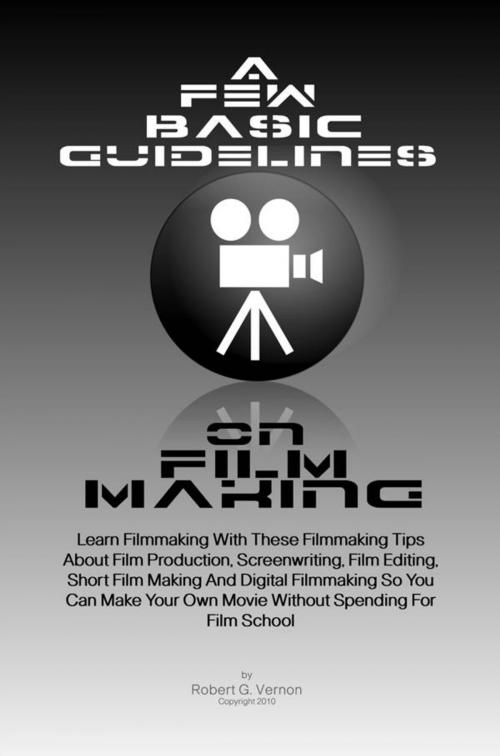A Few Basic Guidelines On Film Making
Learn Filmmaking With These Filmmaking Tips About Film Production, Screenwriting, Film Editing, Short Film Making And Digital Filmmaking So You Can Make Your Own Movie Without Spending For Film School
Nonfiction, Entertainment, Film, Direction & Production, Performing Arts| Author: | Robert G. Vernon | ISBN: | 1230000017287 |
| Publisher: | KMS Publishing | Publication: | September 12, 2012 |
| Imprint: | Language: | English |
| Author: | Robert G. Vernon |
| ISBN: | 1230000017287 |
| Publisher: | KMS Publishing |
| Publication: | September 12, 2012 |
| Imprint: | |
| Language: | English |
Even if you haven't gone to film school or taken up any courses on film making, you can still make movies or short films that are deserving attention. Studying on your own by reading up and testing out several techniques can get you far.
1. Everything is about your story. Ask yourself: "Why would anyone want to watch my film?" Tell a story that attracts strong interest and will hold attention.
2. Making a film will always cost money. A budget helps you spend money on the really essential details your film needs.
3. Film lighting helps create the mood. Set up appropriate lighting to match every story line so you can effectively affect your audience.
4. Don't hesitate to spend on high-quality sound. Most people will forgive bad image if the story makes up for it but they can never tolerate poor sound quality on a film.
5. The right actors and actresses will bring life to your film. Putting in extra effort in getting together the right cast to portray each role realistically can be a huge pay off in the end.
These are just some of the basic pointers the amateur filmmaker will need to learn to make a good quality movie. This book gives a few more basic guidelines on making your own short film the most excellent and interesting it can be.
Even if you haven't gone to film school or taken up any courses on film making, you can still make movies or short films that are deserving attention. Studying on your own by reading up and testing out several techniques can get you far.
1. Everything is about your story. Ask yourself: "Why would anyone want to watch my film?" Tell a story that attracts strong interest and will hold attention.
2. Making a film will always cost money. A budget helps you spend money on the really essential details your film needs.
3. Film lighting helps create the mood. Set up appropriate lighting to match every story line so you can effectively affect your audience.
4. Don't hesitate to spend on high-quality sound. Most people will forgive bad image if the story makes up for it but they can never tolerate poor sound quality on a film.
5. The right actors and actresses will bring life to your film. Putting in extra effort in getting together the right cast to portray each role realistically can be a huge pay off in the end.
These are just some of the basic pointers the amateur filmmaker will need to learn to make a good quality movie. This book gives a few more basic guidelines on making your own short film the most excellent and interesting it can be.















